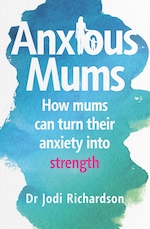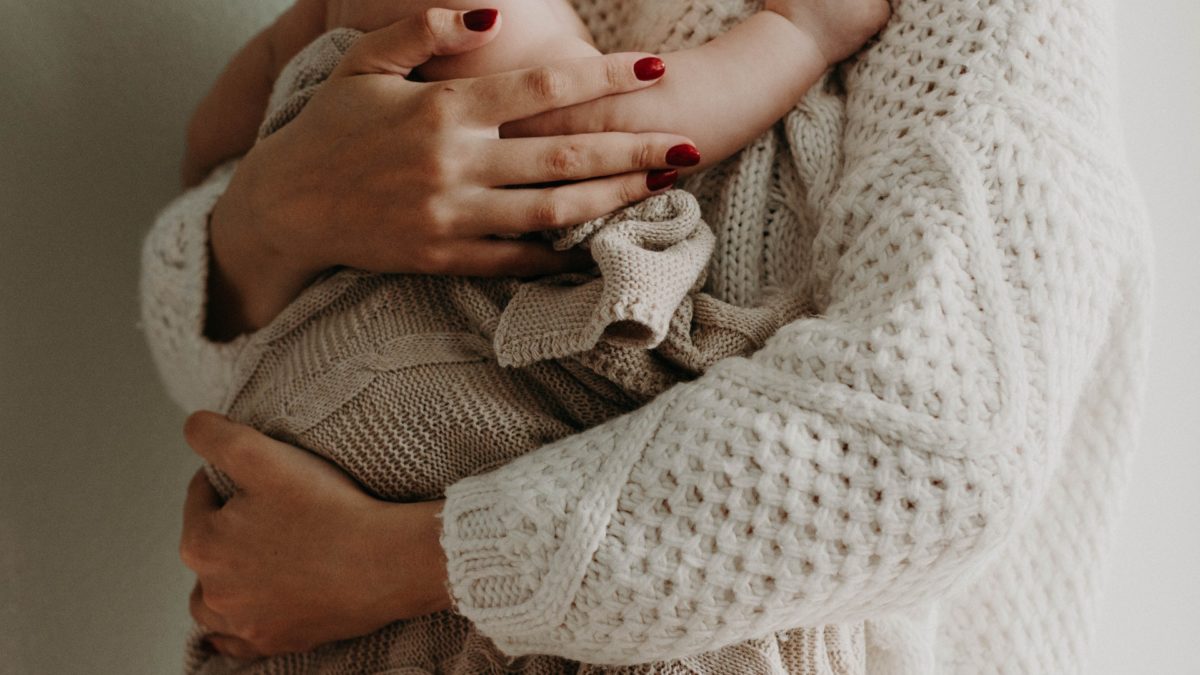As a brand new parent, I had barely a day of holding Hunter before I quickly became terribly concerned about his health.
A discolouration on his cheek and neck was diagnosed as a port-wine stain birthmark. We weren’t worried in the least—our baby boy was healthy and we assumed birthmarks are merely cosmetic. But once it was established that he had the birthmark, a string of assessments by medical professionals began. After about the fifth professional left, I asked a nurse why so many doctors were coming to look him. “Birthmarks can be cancerous,” she replied.
Those words marked the beginning of my severe anxiety as a mother. Knowing my history, if it wasn’t that comment, it would have been something else. I couldn’t enjoy my baby the way other mums seemed to: I was always worried to my core that something was terribly wrong. So many beautiful moments, memories and mindful, loving connections lost.
As parents we want to show our kids that all feelings are okay, and for them to learn healthy ways to express and regulate their emotions. We don’t want them to see us constantly suffering. Nor do we want them to see us engage in unhelpful and unhealthy ways of coping.
I used to eat a lot of chocolate to cope with my anxiety. I’m talking family-size blocks of Cadbury Dairy Milk. When the kids were babies and toddlers I could eat what I wanted, when I wanted. As they got a little older I’d hide in the pantry so they wouldn’t see. I distinctly remember the day I bought some chocolate and lied to Hunter about what I’d put in my handbag so I wouldn’t have to share it. I felt so guilty, and finally realised it wasn’t helping. I was eating to numb how I felt, to gain some sort of relief, albeit momentary.
In the video below, Danni Synot shares what it’s like to live with anxiety as a mum.
I occasionally turn to alcohol, too. Unfortunately, and we all know it, both are classic examples of the solution becoming the problem, or having the potential to. It’s what author and psychotherapist Dr Russell Harris describes as the “happiness trap”: in attempts to avoid or reduce feelings of anxiety, and to feel better through what we eat and drink and do, we can create new health and wellbeing challenges for ourselves that serve only to fuel more unhappiness and distress.
Knowing what anxiety has cost me I’ve strived hard as a mum to stop it from colouring family life. For years I wouldn’t even use the words anxiety or worry with the kids, driven by irrational hopes that if they didn’t have the language for it, anxiety might not become a part of their lives. I used to tell them they felt “concerned” when they worried about something. I chuckle at that now.
I parent with warmth, love, honesty, kindness, communication, compassion, patience, vulnerability, availability and, as much as possible, fair, natural and consistent consequences for poor choices. Hunter and Mackinley know and understand anxiety, how it affects me and what I need to do when I feel it rising or taking over. I want to be the sort of parent they can come to with anything, any time, knowing I’ll listen. A parent who they know will support them, and who’s equipped them for all life might throw at them; a parent who’s helped teach them how to think, not what to think. I strive every day to balance their growing independence with nurturing; to build their resilience and to give them the freedom they need, while managing my anxiety as they begin to spread their wings.
How about you? I know you too have learned much on your journey to being here. I see the pain anxiety causes for women like us almost every day. It has a way of putting a stop sign in our way, of slowing us down and holding us back when we want to move forward. It drags our thinking into the past, our heads full of “what ifs”, questions and scenarios that we replay over and over again in vain attempts to solve problems that likely never existed. It pulls our thinking into the future where scrupulous planning, predictions, problem-solving and worry can eat away at us in slow, cruel ways, depriving us of the beauty, connection and opportunities that befall us in the moment.
Life with anxiety is different for different women. But much as our experiences can differ, we’re likely to have a lot in common. We long to live a life without the suffering anxiety brings.
It’s perfectly natural to want to eliminate anxious thoughts and feelings, or avoid situations that have the potential to cause us suffering. Most of us were brought up thinking about feelings as “good” or “bad”, “positive” or “negative”; that more “good” is better, and less “bad” is better still. We were never taught to experience our feelings, the good, the bad and the ugly.
Anxiety is synonymous with avoidance. Avoidance of situations and experiences, avoidance of change, of people and places, of opportunities and of life as we once knew it. All with a view to minimising our pain. But what’s left? The cost of anxiety is the way it can stop us living fully.
Learning about my condition changed my life. Finally, after a lifetime of feeling so broken, I felt whole again. I have my incredible psychologist, Alec, the wonderful Karen Young from Hey Sigmund, who reinforced for me that I was still whole despite my anxiety, and Dr Russ Harris to thank for that.

Extract from Anxious Mums by Jodi Richardson, published by Penguin Life on 17 November 2020, RRP $34.99.
WIN CHILDREN’S BOOKS!
Submit a personal story on your parenting journey, thoughts or experience and if we use your story, we’ll send you a selection of children’s books! Write to us at editorial@mumsatthetable.com.
How helpful was this article?
Click on a star to rate it!
0 / 5. 0
Be the first to rate this post!
Dr Jodi Richardson
Related posts
Subscribe
Receive personalised articles from experts and wellness inspiration weekly!

